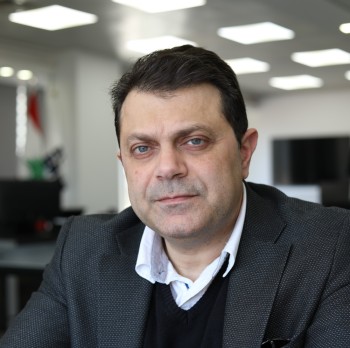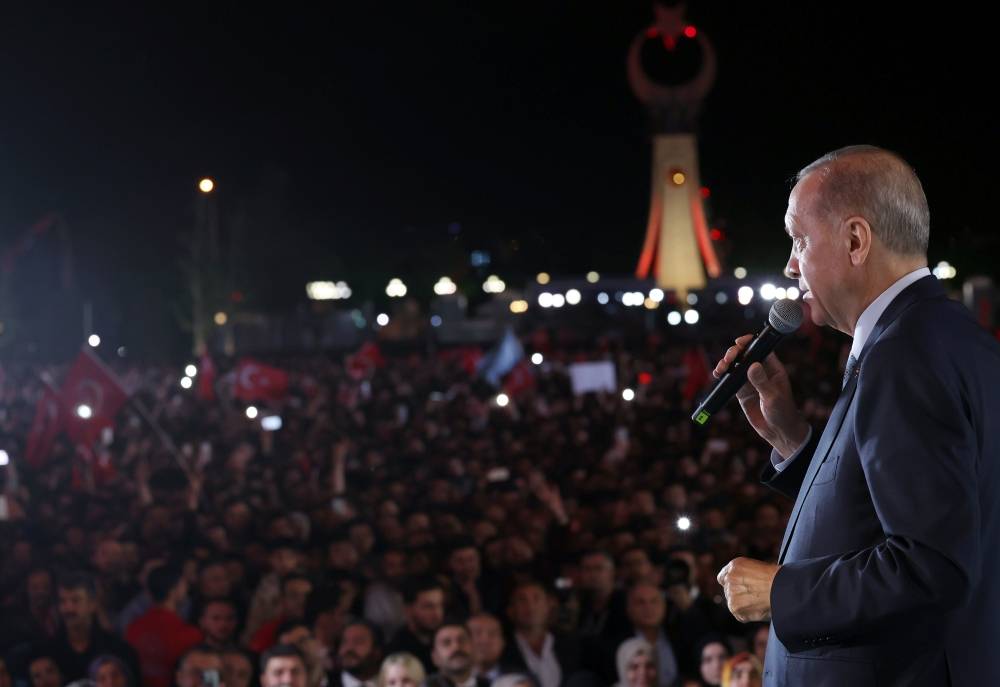Turkish President Recep Tayyip Erdogan won the presidential elections securing a new 5-year term after obtaining 52.87 percent of the votes in the second round of the elections, while his rival Kemal Kilicidaroglu's got 47.13 percent of the votes.
These elections were not limited to an internal rivalry between the Turkish parties but saw a rivalry between the US opposing Erdogan and Russia and Iran supporting him. During the past decade Ankara saw its relations with Washington get tense while its relations with Moscow and Tehran were improving. The Russians and Iranians have benefited from their relations with Erdogan to distance Turkey relatively from the Western camp in light of the sharp polarization between the bloc of Eurasian countries that includes China, Russia and Iran, and the NATO countries led by the United States of America.
Ankara's relations with Washington
Washington had started supporting the Turkish opposition parties, led by the Republican People's Party led by Kemal Kilicidaroglu, to overthrow Erdogan in the 2023 presidential elections
Over the past two decades, Turkish-American relations have witnessed a transition from a state of full cooperation that extended from 2002, the date of the access of the Justice and Development Party to power under the leadership of Recep Tayyip Erdogan, until 2013, when the United States decided to no longer rely on the Muslim Brotherhood which made its relations with Turkey ge strained thereafter.
The United States was counting that Turkey would be one of the three bases of the Sunni triangle, in addition to Egypt and Saudi Arabia, to counter what it considered as an expansion of the "Shiite Crescent" led by Iran, especially since the latter had converged greatly with Russia and China and became their bridge towards the eastern Mediterranean.
But the year 2013 witnessed the fall of the US bet on the Muslim Brotherhood as a result of their poor performance in Egypt under President Mohamed Morsi, especially after they failed to take over power in the Kingdom of Saudi Arabia. The decisive moment was the battle of Al-Qusayr in central Syria, when the Syrian Arab Army and Hezbollah emerged victorious in the battle against armed groups backed by Turkey, Qatar and the United States of America, which ensured that the Syrian regime will no collapse.
This made Washington no longer count on a Turkish role in Syria and the Arab region and made it rely on the Kurds in northeastern Syria, northern Iraq and northwest Iran. This angered Erdogan, who feared that this would encourage Kurdish separatists in Turkey, especially in light of Washington's support for the Peoples' Democratic Party, which is controlled by the Kurdistan Workers' Party (PKK).
What increased Washington's ire against Erdogan was the relations that his son Najm al-Din Bilal forged with the Iranians, which helped the latter circulate hundreds of millions of dollars in banks run by businessmen close to him, which helped Tehran bypass US sanctions.
This made Washington angry at Erdogan and prompted it to oppose the scheduling of Turkish debts, which had escalated from $30 billion to about $450 billion in 2012, which led to an economic crisis in Turkey that caused the eruption of mass protests in 2013.
In 2016, a coup d’etat was launched in Turkey, with the support of the United States, which exacerbated the worsening of relations between Ankara and Washington. This was increased by the United States' support for the Kurdish Syrian Democratic in northern Syria, which prompted Erdogan to send units of the Turkish army to occupy positions in northern Syria. In reaction, in 2019 Washington threatened to withdraw its soldiers from Incirlik base in Turkey. This was preceded by Washington's imposition of economic sanctions on Turkey, which exacerbated the financial crisis in the country.
At this time, Washington had started supporting the Turkish opposition parties, led by the Republican People's Party led by Kemal Kilicidaroglu, to overthrow Erdogan in the 2023 presidential elections. There was talk of a visit that Kilicidaroglu made to Washington to coordinate American support for the opposition ahead of the elections.
Ankara's relations with Moscow
In 2017, Turkey signed a deal to buy the Russian S-400 missile defense system, which led to tensions with the United States and NATO.
At a time when Turkish-American relations were declining, Russian-Turkish relations were moving from a phase of tension to a phase of cooperation. When the Justice and Development Party came to power in Turkey, one of Erdogan's bets was to make Turkey the transit for oil pipelines from Central Asia to Europe (the Nabucco pipeline) as an alternative to Russia. This had American blessing in light of Washington's efforts to isolate Moscow. However, Russian President Vladimir Putin managed to thwart this plan by strengthening cooperation with Central Asian countries within the framework of the Shanghai Cooperation Organization, which was launched in 2001 and included Russia, China, Tajikistan, Uzbekistan, Kazakhstan and Kyrgyzstan. Likewise, the Russian president was able to win Hungary over to his side, distancing it from the Turkey.
Turkey's support for Islamic movements in the Caucasus region constituted another factor of tension between Ankara and Moscow, in addition to Erdogan's support for the attempt to overthrow Syrian President Bashar al-Assad after 2011 as part of the plan to tighten the West's control over Syria and prevent it from becoming a crossing point for Russia, China and Iran towards the eastern Mediterranean. Tension between Russia and Turkey reached a peak after the Russian forces landed in Syria and set up the Hmeimim base as a starting point for their anti-terrorism activities, and this tension reached a climax when Turkey shot down a Russian warplane, and when a Turkish guard assassinated the Russian sir in Ankara.
However, Moscow was seeking to accommodate Ankara in light of its knowledge of the latter's tense relations with Washington. The pivotal moment was when the media reported that Moscow provided Erdogan with information about the putschists' movement in July 2016, which contributed to the failure of the coup against him. In light of the US sanctions on Turkey, Russia constituted an alternative to Turkey. Economic relations have begun to consolidate between the two countries, leading to Russia becoming an important economic partner for Turkey, as the volume of trade between the two countries reached $25 billion in 2019. Russia has also invested heavily in energy infrastructure in Turkey, including the construction of the "Turk Stream" gas pipeline, which has become an alternative to Moscow for the Ukrainian pipeline to transport gas to Europe, and Russia has also become Turkey's main gas supplier, securing 60 percent of its gas needs. In addition, Russia started to construct a nuclear power plant in Turkey worth 10 billion dollars.
In 2017, Turkey signed a deal to buy the Russian S-400 missile defense system, which led to tensions with the United States and NATO. Russia has also conducted joint military exercises with Turkey on many occasions. Likewise, Russia was able to attract Turkey to become a member of the Astana platform on Syria, along with Russia and Iran, relatively distancing it from Washington's orbit with regard to the Syrian crisis. All these reasons made Moscow favor Erdogan's victory in the presidential elections at the expense of Kilicidaroglu, who enjoyed Washington's support.
Ankara's relations with Tehran
With regard to Iran, its relations with Turkey have been volatile over the past two decades, with a tendency for improvement and Tehran's preference for Erdogan over other Turkish leaders. Tehran was optimistic about the arrival of an Islamist party, the Justice and Development Party, to power in Turkey in 2002, and considered this a prelude to Ankara distancing itself from Israel.
Despite Tehran's awareness of the United States' attempt to establish a Sunni triangle of Ankara, Riyadh, and Cairo to confront it, it preferred cooperation with the rising Turkish elites under the auspices of the AK Party. Tehran was able to woo Najm al-Din Bilal, Erdogan's son, to establish good relations through which Iran was able to circulate hundreds of billions of dollars through the banks that revolve in the orbit of the son of the Turkish prime minister, which aroused the ire of Washington, which found that Iran had managed to render the US sanctions obsolete.
Although Turkey and Iran stand on opposite sides with regard to the war on Syria, in light of Erdogan's attempt to overthrow the Syrian president, who is considered a staunch ally of Iran, the Iranian-Turkish relations remained strong on other levels, the most important of which is the economic one. Iran and Turkey have close economic relations, especially with regard to energy, noting that Turkey is a major consumer of Iranian oil and gas despite the US sanctions against Iran. Over the past decade, Turkish and Iranian officials have signed several agreements to boost trade between their countries. In 2017, the two countries signed a preferential trade agreement aimed at increasing trade to $30 billion by 2023. The agreement included reducing customs duties on certain goods.
Iran was able to attract Turkey to cooperate with it regarding the war in Syria, especially in light of the two countries' fear of the Kurdish separatist movement. While Turkey fears that the Kurds in northern Syria will form a base to encourage the Turkish Kurds to secede, Iran fears a Kurdish separatist movement in northwestern Iran backed by Washington. All this made Iran prefer Erdogan over his opponent, despite its reservations about his role in Syria, and about his role in increasing the tension between Azerbaijan and Armenia, which affects the Azeri minority in northwestern Iran.
Conclusion
In conclusion, the United States seems to have lost a round in the battle to attract Turkey to its side against Russia and Iran, while Moscow and Tehran seem satisfied with the result that will ensure that Turkey will be relatively distant from the US. It is noteworthy that Russia is counting on a Turkish role in mediating with the West regarding the Ukrainian crisis, while Iran is counting on Turkey to be an outlet for its economy against Western blockade. In addition, Moscow and Tehran are betting on attracting Erdogan to their side with regard to the Syrian crisis, in light of the Turkish president's fear of the United States' support for the Kurds in Syria, Iraq and Iran.
Please post your comments on:
[email protected]
 Politics
Politics








